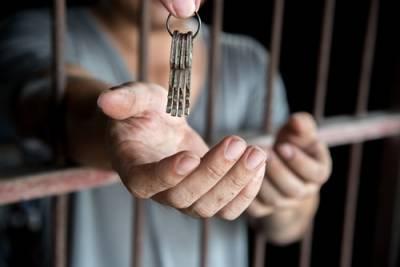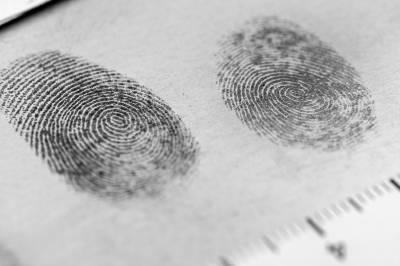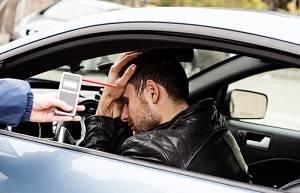
 In 2015, more than 1,000 non-violent, low-level offenders spent more time in jail than they were sentenced to serve. The reason? They did not have the money to post bail. To keep this from happening any longer, and to ultimately reduce the overpopulation of local jails and prisons, Governor Bruce Rauner signed the Bail Reform Act into law. What is this new law, and how might it affect your criminal charges case? The following explains.
In 2015, more than 1,000 non-violent, low-level offenders spent more time in jail than they were sentenced to serve. The reason? They did not have the money to post bail. To keep this from happening any longer, and to ultimately reduce the overpopulation of local jails and prisons, Governor Bruce Rauner signed the Bail Reform Act into law. What is this new law, and how might it affect your criminal charges case? The following explains.
Cash Bail No Longer Required for Some Offenses
Criminal justice reform advocates have been criticizing the state’s bail system for some time now, calling it unfair to Illinois’ poorer and disadvantaged communities. Most could not afford the 10 percent down payment needed to meet bail. Instead, they would be forced to spend weeks, sometimes months incarcerated for non-violent or low-level crimes.
 Assault charges are considered a Class C misdemeanor in the state of Illinois. They can result in fines, fees, and imprisonment. In addition, your reputation, employment, and housing may be at risk. Learn more about the potential consequences of an assault charge in Illinois, and discover how an experienced criminal defense attorney can help you fight against them.
Assault charges are considered a Class C misdemeanor in the state of Illinois. They can result in fines, fees, and imprisonment. In addition, your reputation, employment, and housing may be at risk. Learn more about the potential consequences of an assault charge in Illinois, and discover how an experienced criminal defense attorney can help you fight against them.
Defining Assault Charges
Often, defendants assume they can win their case because they did not physically attack another person. Unfortunately, this is not always the case. In fact, assault charges do not have to include physical contact with another person. Instead, you can be charged with assault, simply for causing someone to believe they are at risk of physical harm. Examples might include shaking your fist in someone’s face or throwing an object in the direction of another person with the intent to threaten. Aggravated assault is a heightened offense, and it involves threatening another person with a deadly weapon (i.e. knife, gun, vehicle, etc.).
 An arrest or conviction on your criminal record can have a dramatic impact your personal life. It can reduce your employment opportunities and may even limit your housing options. Certain charges (particularly those related to driving while under the influence) can also increase your insurance rates and may have other collateral consequences. Thankfully, you may be eligible for an expungement of your record. Learn more about this option and how an experienced criminal defense lawyer can assist with the process.
An arrest or conviction on your criminal record can have a dramatic impact your personal life. It can reduce your employment opportunities and may even limit your housing options. Certain charges (particularly those related to driving while under the influence) can also increase your insurance rates and may have other collateral consequences. Thankfully, you may be eligible for an expungement of your record. Learn more about this option and how an experienced criminal defense lawyer can assist with the process.
What is Expungement?
At its core, expungement is a legal process in which your criminal charge or conviction is “sealed” from the eyes of the public. It means that most employers, landlords, insurance companies, and the public are unable to see the sealed arrests, charges, and/or convictions. However, not every record, charge, arrest, or conviction can be expunged. Instead, there are certain requirements that a person must meet to have their records sealed.
 No matter how heinous their crimes might seem, juvenile offenders are, by all standards, children. They do not always understand the consequences of their actions, may struggle with impulse control, and have brains that are not yet fully developed. Yet, in Illinois, and in other states throughout the country, they are serving life sentences for crimes they allegedly committed.
No matter how heinous their crimes might seem, juvenile offenders are, by all standards, children. They do not always understand the consequences of their actions, may struggle with impulse control, and have brains that are not yet fully developed. Yet, in Illinois, and in other states throughout the country, they are serving life sentences for crimes they allegedly committed.
A recent ruling from the U.S. Supreme Court, in which it was deemed unconstitutional to incarcerate a minor for life without parole, gives these offenders the chance to appeal their former sentences. Unfortunately, there may be more who receive the exact same type of sentence in the very near future. If your child is being charged with a serious or violent crime, the following can help you better understand what they may be up against and how you can attempt to protect them from a life behind bars.
 In 2011, the State Attorney for LaSalle County created the State’s Attorney Felony Enforcement Unit (SAFE). In the roughly four years that it operated, the unit managed to confiscate over $1.7 million from Illinois drivers. They also filed more than 50 civil forfeiture cases and arrested 77 people on drug charges. The Illinois Supreme Court recently ruled that all acts – including those tied to criminal cases – were wrongful. The reason? The task force should never have existed. Learn more about what this could mean for your drug conviction case, and how an experienced criminal defense lawyer may be able to help.
In 2011, the State Attorney for LaSalle County created the State’s Attorney Felony Enforcement Unit (SAFE). In the roughly four years that it operated, the unit managed to confiscate over $1.7 million from Illinois drivers. They also filed more than 50 civil forfeiture cases and arrested 77 people on drug charges. The Illinois Supreme Court recently ruled that all acts – including those tied to criminal cases – were wrongful. The reason? The task force should never have existed. Learn more about what this could mean for your drug conviction case, and how an experienced criminal defense lawyer may be able to help.
Abuse of Power Rampant in SAFE Squad
Law enforcement is supposed to be a government entity, meaning it should operate and act within the law. Unfortunately, the SAFE Unit failed to do this. Not only did the Illinois Supreme Court rule that they had wrongfully searched the vehicles of Illinois drivers, but they also operated in a for-profit way. Funds from seizures were used to purchase everything from conferences in Las Vegas to office furniture, patrol cars, and even employee salaries.
 A little more than half of U.S employers drug test potential employees before offering a job. An analysis of over 10 million workplaces found that the number of positive results is the highest it has been in 12 years. Marijuana, cocaine, and methamphetamine use is on the rise nationwide. According to the analysis carried out by Quest Diagnostics, 4.2 percent of drug tests produced positive results in 2016. That number is up 4 percent from 2015, making it the highest rate since 2004.
A little more than half of U.S employers drug test potential employees before offering a job. An analysis of over 10 million workplaces found that the number of positive results is the highest it has been in 12 years. Marijuana, cocaine, and methamphetamine use is on the rise nationwide. According to the analysis carried out by Quest Diagnostics, 4.2 percent of drug tests produced positive results in 2016. That number is up 4 percent from 2015, making it the highest rate since 2004.
Marijuana Leads in Drug Use
Although the Illinois rate of positive drug tests was the same as the national average, drug use varies between different regions. For example, Chicago’s suburban residents tested positive for cocaine more than other drugs. Southern Illinois residents tested positive for opiates more often than other areas, and heroin use was most common near Rockford.
 According to data collected by the American Civil Liberties Union and the Illinois Policy Institute, state and local police agencies have seized and kept nearly $320 million in assets purportedly related to criminal activity since 2005. During that same time, federal law enforcement entities within Illinois seized an additional $404 million. Law enforcements agencies have the authority to do so under state and federal asset forfeiture laws, but with a signature from Illinois Governor Bruce Rauner, the laws regarding asset forfeiture in Illinois could be about to change.
According to data collected by the American Civil Liberties Union and the Illinois Policy Institute, state and local police agencies have seized and kept nearly $320 million in assets purportedly related to criminal activity since 2005. During that same time, federal law enforcement entities within Illinois seized an additional $404 million. Law enforcements agencies have the authority to do so under state and federal asset forfeiture laws, but with a signature from Illinois Governor Bruce Rauner, the laws regarding asset forfeiture in Illinois could be about to change.
Understanding Asset Forfeiture
When a person is arrested in connection with a criminal offense, it is understandable that the police would seize contraband including drugs, paraphernalia, and weapons owned without proper licensing. Law enforcement, however, is also permitted to seize any private property believed to have been used or generated in connection with the criminal activity. While existing laws were intended to help combat organized crime and drug cartels by reducing their available assets, police departments have long since applied the same laws to much smaller operations. Seized assets may include cars, guns, homes, and, most often, cash, and the assets may be seized and kept even if the owner is never convicted or charged.
 Early last month, Illinois Governor Bruce Rauner signed a bill into law which he believes will transform the state’s bail process. Some criminal justice advocates are not buying the positive forecast and instead say these reforms do not do enough.
Early last month, Illinois Governor Bruce Rauner signed a bill into law which he believes will transform the state’s bail process. Some criminal justice advocates are not buying the positive forecast and instead say these reforms do not do enough.
Current Practices and the New Law
When a person is arrested, the court, in most cases, sets a bail amount that allows the person to get out of jail until the case is decided in a court of law. The point of bail is to act as a guarantee that the person will show up for their court hearings and trial. But many people who advocate for criminal justice reforms say that bail often punishes poor people who simply cannot afford the amount the court sets. Reform advocates believe that bail is generally set far too high, particularly for low-level, non-violent offenses.
Under the new law, if a person has not been able to make bail within seven days, he or she can request a review of the bail amount. The defendant will also receive a $30 per day credit for every day spent behind bars, which will go towards any fines he or she is required to pay if convicted. This new law only applies to misdemeanors and low-level felonies. The new law also gives defendants the right to have an attorney representing them during the bail hearing process.
 When you are pulled over by a police officer and the officer has a reason to believe that you may be intoxicated, he or she may ask you to submit a blood-alcohol content (BAC) test—most often in the form of a breath test. It is possible for the officer to ask even if he or she does not really suspect that you are drunk, but most such tests—commonly referred to as breathalyzers—are conducted to confirm the officer’s suspicions. If an officer in Illinois asks you to take such a test, should you do it? And, what will happen if you refuse? The answers to these questions depend on a number of factors, including when the request is made and what you were doing in the hours leading up to the stop.
When you are pulled over by a police officer and the officer has a reason to believe that you may be intoxicated, he or she may ask you to submit a blood-alcohol content (BAC) test—most often in the form of a breath test. It is possible for the officer to ask even if he or she does not really suspect that you are drunk, but most such tests—commonly referred to as breathalyzers—are conducted to confirm the officer’s suspicions. If an officer in Illinois asks you to take such a test, should you do it? And, what will happen if you refuse? The answers to these questions depend on a number of factors, including when the request is made and what you were doing in the hours leading up to the stop.
Prior to Arrest
The timing of the officer’s request is the key element in determining if consequences will apply for refusing a breathalyzer. If you are asked to take the test before any mention of arrest or any other detainment—except for the traffic stop, obviously—you have no obligation to submit to the test. You cannot be prosecuted nor will you face any other penalties for refusing a BAC test at this point.
 With Summer at its start and the weather becoming nicer, more and more people will take to their bicycles for transportation. However, one of the least talked about safety issues is riding a bicycle while intoxicated.
With Summer at its start and the weather becoming nicer, more and more people will take to their bicycles for transportation. However, one of the least talked about safety issues is riding a bicycle while intoxicated.
Can I Get a DUI on a Bicycle?
Various states have provisions on their law books where one may be charged with a DUI for riding a bicycle drunk. However, in Illinois, unless certain other circumstances are met, you will likely not be charged with a DUI while riding a bike.
The reason why you usually cannot be charged with a DUI on a bike is because a bicycle is not legally defined as a vehicle. Therefore, operating a bicycle while intoxicated is not the same as operating a car or motorcycle in the eyes of the law.
There are, however, two exceptions. If your bicycle is motorized and you are traveling over 20 mph you may then be arrested and charged with a DUI.
 A lawyer’s time and advice are his stock and trade.
A lawyer’s time and advice are his stock and trade.